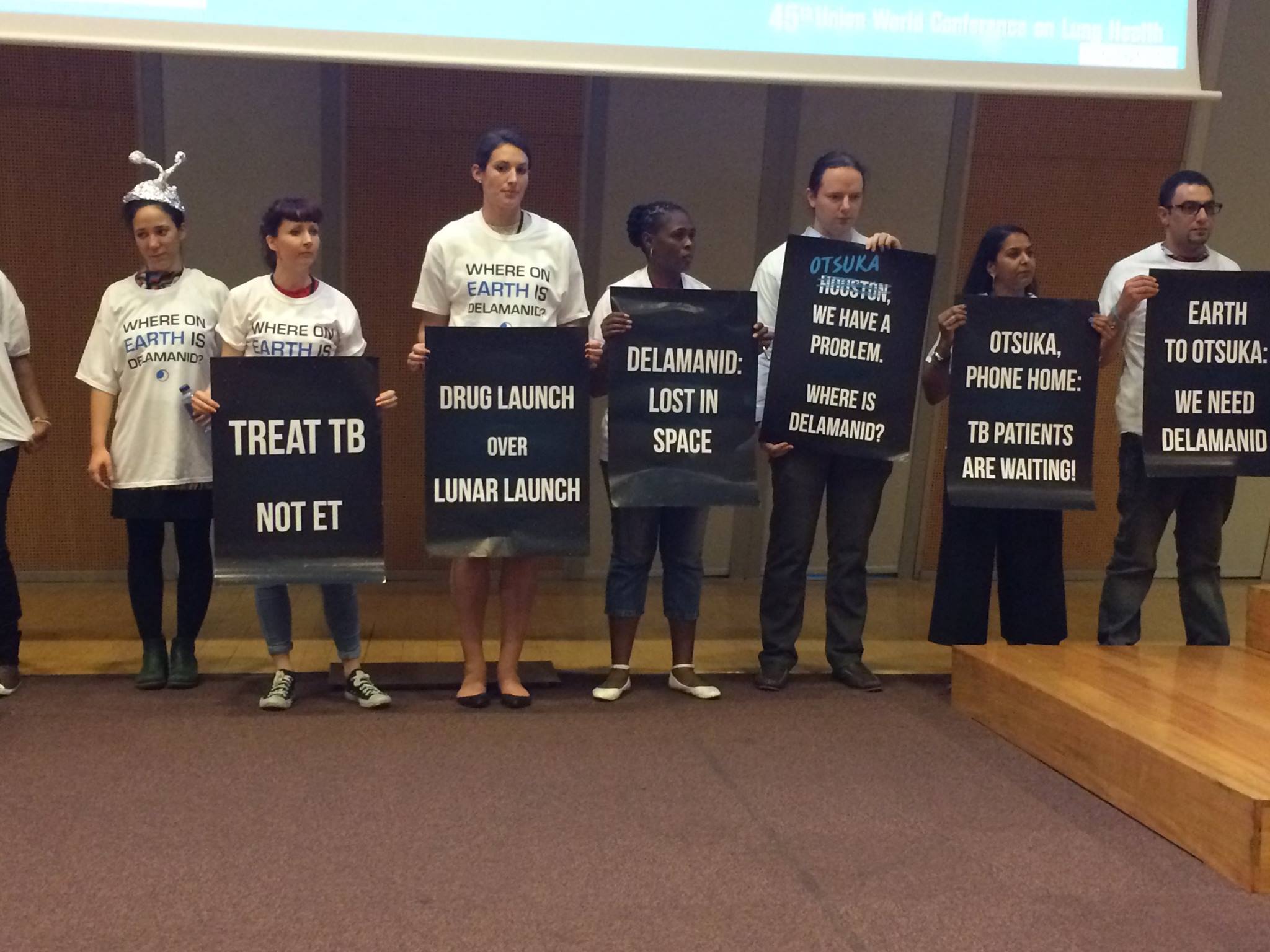
TB activists interrupted Otsuka’s symposium at the 45th Conference on Lung Health, calling for widespread registration of and immediate broad compassionate use access to delamanid, Otsuka’s new drug to treat multidrug-resistant TB.
BARCELONA, SPAIN, October 30, 2014 — Tuberculosis (TB) activists interrupted Otsuka’s symposium at the 45th Conference on Lung Health, calling for widespread registration of and immediate broad compassionate use access to delamanid, Otsuka’s new drug to treat multidrug-resistant TB (MDR-TB).
Activists called attention to the contrast between delamanid’s limited availability here on earth and Otsuka’s plan to launch its sports drink on the moon. In 2015, Otsuka plans to send a canister filled with its powdered sports drink to the lunar surface, in what would be the first private moon landing. Calling on the company to make delamanid more broadly available, activists highlighted the disparity between Otsuka’s expensive publicity stunt in space and its failure to provide access to its potentially lifesaving drug here on earth.
MDR-TB, a deadly infectious disease, affects almost half a million people a year, one-fifth of whom are started on MDR-TB treatment; of these, less than half are cured. Delamanid’s regulatory approval by European and Japanese regulators earlier in 2014 offered renewed hope for treating MDR-TB. But since then, Otsuka has allowed only a handful of patients with MDR-TB to receive delamanid. The drug is registered only in Europe and Japan, where very few have MDR-TB, and Otsuka’s compassionate use program is essentially broken.
“Otsuka is the leading private-sector funder of TB R&D. But those investments are ultimately meaningless if delamanid cannot reach those who need it,” said Mark Harrington, executive director of Treatment Action Group. “Otsuka urgently needs to make delamanid available by registering the drug widely—particularly in the developing countries where it conducted clinical trials leading to approval in rich countries—and by allowing patients in need to obtain the drug under compassionate use.”
Otsuka rejected Dr. Caitlin Reed’s attempt to obtain delamanid for her patient, Gary, in California, who has the most drug-resistant case of TB ever identified in the United States. “Otsuka’s unreasonable restrictions have serious consequences for patients like Gary, who urgently need new drugs,” Dr. Reed explained. “Less than halfway into two-year treatment without delamanid, Gary is already suffering from hearing loss and disabling nerve damage—and his toxic, inadequate regimen may not even cure his TB.”
Stephanie, Gary’s sister, took the podium when activists interrupted Otsuka’s symposium to explain the direct effect of Otsuka’s policy on patients and their families. “Knowing a drug exists out there to help my brother, and not being able to get it for him, is heartbreaking,” she said. “Otsuka, please let my brother and others like him, literally dying for new treatment, have delamanid.”
###
Treatment Action Group is an independent AIDS research and policy think tank fighting for better treatment, a vaccine, and a cure for AIDS. TAG works to ensure that all people with HIV receive lifesaving treatment, care, and information. We are science-based treatment activists working to expand and accelerate vital research and effective community engagement with research and policy institutions. TAG catalyzes open collective action by all affected communities, scientists, and policy makers to end AIDS.
Source: Treatment Action Group